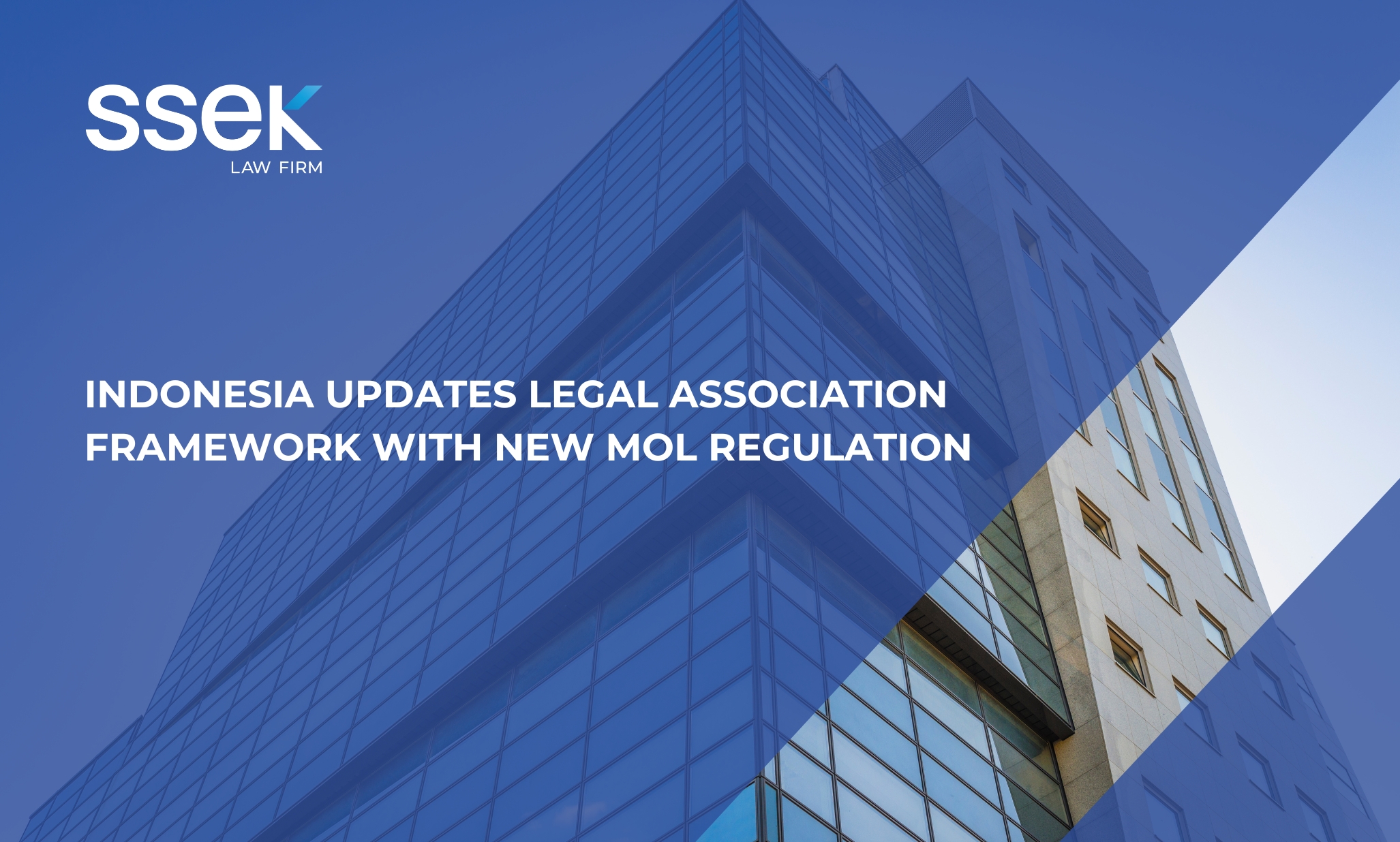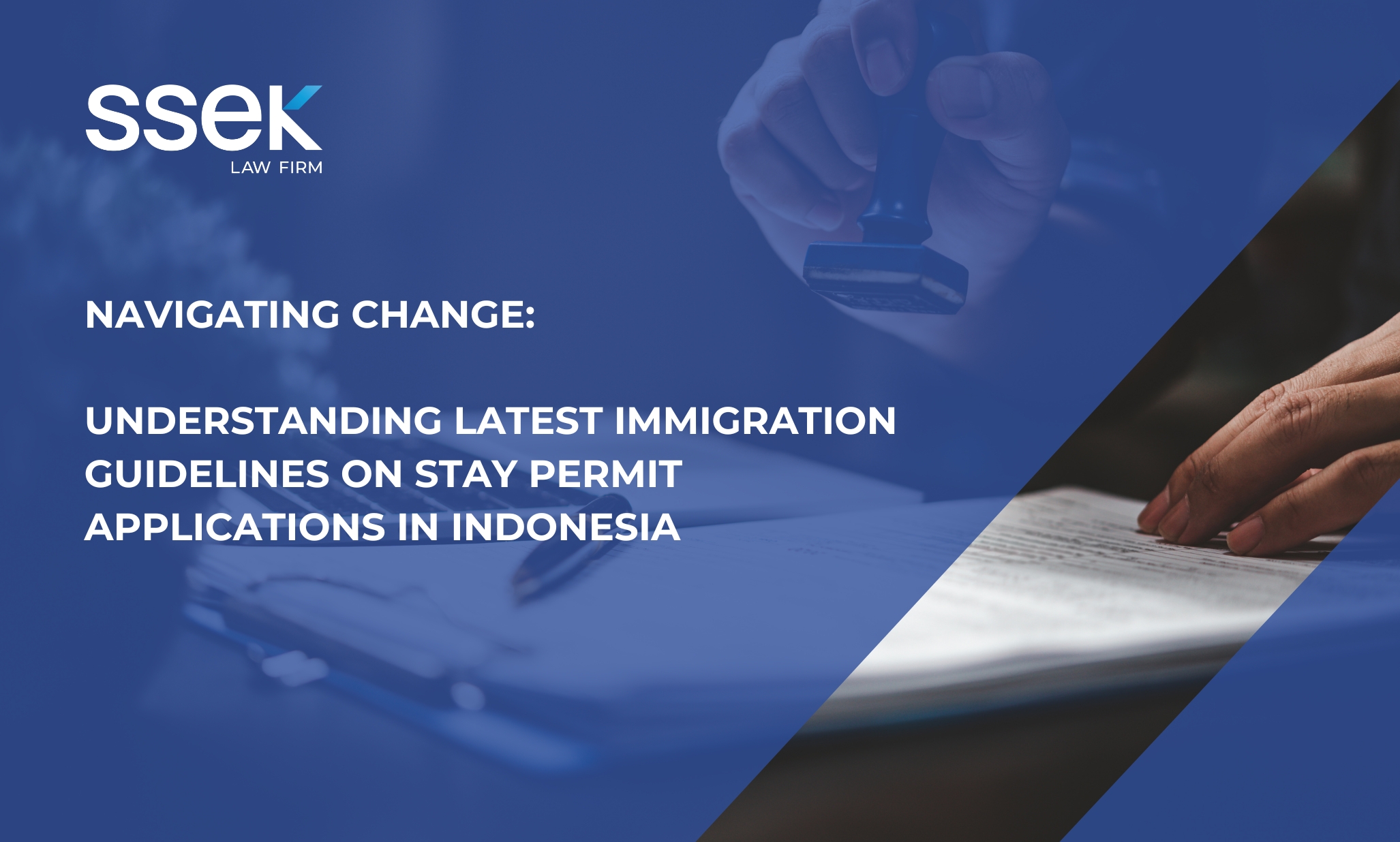

SSEK Indonesian Legal Consultants founding partner Ira A. Eddymurthy and partner Denny Rahmansyah have contributed the Indonesia chapter of the new Practical Law global guide to Establishing a Business in ... SSEK Legal Consultants is one of the top corporate and commercial law firms in Indonesia. It works with leading international and domestic companies on all aspects of their business in Indonesia. SSEK is widely experienced in the establishment of businesses in Indonesia and their ongoing operation.
The following is an excerpt from Establishing a Business in Indonesia.
The main taxes businesses in Indonesia are subject to are:
- Income tax. This tax is imposed on the income received, whether domestically or abroad, in one fiscal year. If the income from abroad is already taxed by the relevant tax authorities in the foreign jurisdiction, then the tax treatment will be different depending on the tax treaty between Indonesia and the relevant foreign country. The corporate tax rate in Indonesia is generally 25%. A 5% reduction is applicable for a publicly listed company that fulfills certain requirements.
- VAT. This tax is imposed on the delivery of goods and services. The rate is 10%.
- Luxury goods sales tax. In addition to VAT, taxes are imposed on the import and/or delivery of luxury goods and services. Government Regulation No. 145/2000 stipulates the types of goods that are considered luxury goods and the rate of sales tax on those goods. Under Government Regulation No. 145/2000, there are six types of goods that are subject to a luxury sales tax at a rate of 10% to 75%.
- Land and building tax. This is imposed annually on property, buildings and land in Indonesia. The rate is 0.5%.
- Duty on acquisition of rights to land and buildings. Taxes are imposed on individuals or entities that obtain the rights to land and/or buildings. The rate of tax is 5% of the acquisition value.
- Stamp duty. Stamp duty of IDR6,000 is imposed on documents that will be used in court and documents that have a value.
- Local government tax. Depending on an entity's domicile, there will be various taxes, charges and duties imposed by the local government, such as vehicle tax, restaurant tax and hotel tax.
Reporting obligation
Indonesia employs a selfÂ-assessment tax system by which taxpayers assess and report their tax obligations for the tax period in question to the Indonesian Tax Office through a tax return. The Directorate General of Taxation (DGT) can assess tax returns to determine whether taxpayers have appropriately applied tax laws and regulations.
When is a business liable to pay tax in Indonesia
A business will become liable to pay tax in Indonesia when such business is deemed a tax subject. Tax subjects are classified as either tax resident or nonÂtax resident.
Tax resident
A business entity is tax resident when that entity is established or is domiciled in Indonesia.
Non-tax resident
A non-tax resident is:
- Any entity that is not established and has no domicile in Indonesia that carries on business or conducts activities through a permanent establishment in Indonesia.
- Any entity that is not established and has no domicile in Indonesia that receives or earns income from Indonesia without carrying on business or conducting activities through a permanent establishment in Indonesia.
A permanent establishment is a business form that is used by:
- An individual who does not reside in Indonesia.
- An individual who lives in Indonesia for not more than 183 days over a period of 12 months.
- An entity that is not established and has no domicile in Indonesia to carry on business or conduct activities in Indonesia.
A permanent establishment will have the same tax obligation as a tax resident. Therefore, any income generated by a permanent establishment in Indonesia will be taxable in Indonesia as if such income was generated by an Indonesian tax subject.
Tax position when profits are remitted abroad
Any profits or dividends that are transferred to an entity or individual abroad that is not deemed a permanent establishment is subject to 20% withholding tax. The rate can change if there is a relevant tax treaty.
This publication is intended for informational purposes only and does not constitute legal advice. Any reliance on the material contained herein is at the user\'s own risk. You should contact a lawyer in your jurisdiction if you require legal advice. All SSEK publications are copyrighted and may not be reproduced without the express written consent of SSEK.









